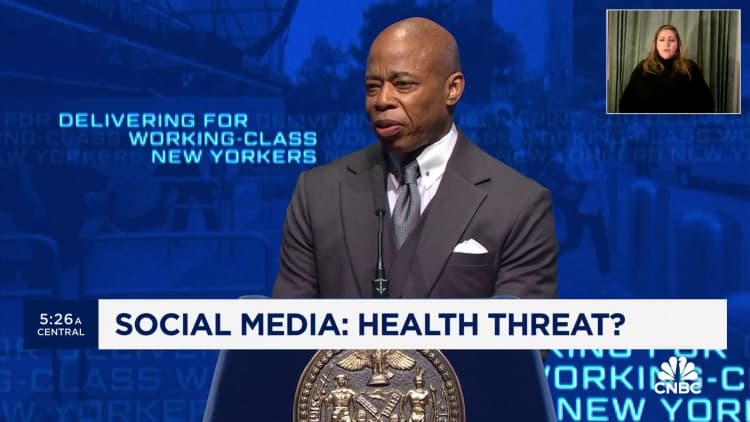Overwhelming evidence suggests social media has a negative impact on self-esteem.
That’s not only true for how people feel about their appearance and social status but also their financial wellbeing and economic standing.
A new term, “money dysmorphia,” aims to describe the distorted view of their finances that nearly one-third, or 29%, of Americans say they now experience, according to a recent report by Credit Karma, often from comparing their financial situation to others’ and feeling inadequate.
“Money dysmorphia is kind of like today’s version of keeping up with the Joneses,” said Courtney Alev, consumer financial advocate at Credit Karma.
Not surprisingly, money dysmorphia is even more prevalent among younger generations, according to Credit Karma. Roughly 43% of Gen Z and 41% of millennials struggle with comparisons to others and feel behind financially.
More from Personal Finance:
‘Loud budgeting’ is having a moment
The ‘mob wife’ trend is easier on the wallet
What to know before taking advice from TikTok
“This has been a problem for a very long time but social media has taken it to a whole new level,” said Carolyn McClanahan, a certified financial planner and founder of Life Planning Partners in Jacksonville, Florida.
Many of those who experience money dysmorphia have above-average savings, Credit Karma also found. However, they are also likely to admit to being obsessed with the idea of being rich.
There is a “distortion between perception and reality,” Alev said.
Only 14% of Americans consider themselves wealthy
That feeling of being well off is increasingly elusive, almost regardless of how much money you have, a separate report by Edelman Financial Engines also found.
The average household’s net worth has soared in recent years, rising 37% between 2019 and 2022, according to the survey of consumer finances from the Federal Reserve.
Still, only 14% of Americans would consider themselves wealthy, according to Edelman Financial Engines, and the bar is only getting increasingly out of reach. In fact, more than half of Americans earning more than $100,000 a year say they live paycheck to paycheck, another report by LendingClub found.
A prolonged period of high inflation and instability has chipped away at most consumers’ buying power and confidence. Instagram is also partly to blame.
“What we found was a really strong connection between feeling badly about your money situation and how much time you spend on social media,” said Isabel Barrow, the director of financial planning at Edelman Financial Engines.
Roughly one-quarter of consumers feel less satisfied with the amount of money they have because of social media, the Edelman Financial Engines study also found. That can even lead some to overspend on such big-ticket items as a vacation, home renovation or luxury good because of the pressure to keep up with the “digital Joneses.”
Barrow, who recently deleted her own Instagram account, advises others to spend less time on social media and remove any payment details stored online to help create “purchase hurdles” that force you to think through buying decisions.
“Sometimes you have to set up guardrails for yourself,” she said.
Then address the financial psychology, added McClanahan, who also is a member of CNBC’s Advisor Council.
“There’s this perception that you have to portray yourself as successful and that means having an expensive watch or nice car and that is so untrue,” she said. “You have to make sure you are happy. Stuff isn’t going to make you happy.”
Subscribe to CNBC on YouTube.
Credit: Source link




